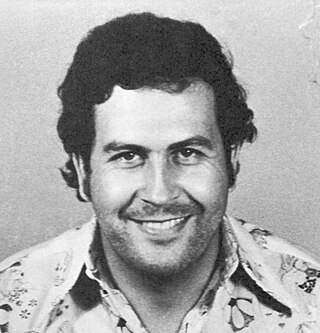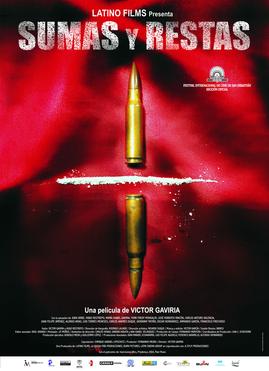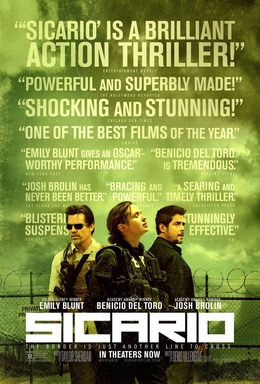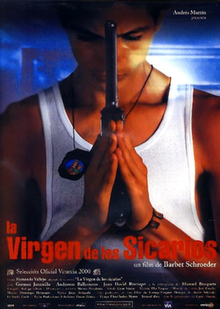
Pablo Emilio Escobar Gaviria was a Colombian drug lord, narcoterrorist, and politician who was the founder and sole leader of the Medellín Cartel. Dubbed "the king of cocaine", Escobar was one of the wealthiest criminals in history, having amassed an estimated net worth of US$30 billion by the time of his death—equivalent to $70 billion as of 2022—while his drug cartel monopolized the cocaine trade into the United States in the 1980s and early 1990s.

The Medellín Cartel was a powerful and highly organized Colombian drug cartel and terrorist organization originating in the city of Medellín, Colombia, that was founded and led by Pablo Escobar. It is often considered to be the first major "drug cartel" and was referred to as such due to the organization's upper echelons and overall power-structure being built on a partnership between multiple Colombian traffickers operating alongside Escobar. Other members included Jorge Luis Ochoa Vásquez, Fabio Ochoa Vásquez, Juan David Ochoa Vásquez, José Gonzalo Rodríguez Gacha, and Carlos Lehder. Escobar's main partner in the organization was his cousin Gustavo Gaviria, who handled much of the cartel's shipping arrangements and the more general and detailed logistical aspects of the cocaine trafficking routes and international smuggling networks, which were supplying at least 80% of the world's cocaine during its peak.
Our Lady of the Assassins may refer to any of the following articles:

Fernando Vallejo Rendón is a Colombian-born novelist, filmmaker and essayist. He obtained Mexican nationality in 2007.

Dandeny Muñoz Mosquera, also known as "La Quica", is a former sicario for the Colombian Medellín Cartel, a prominent drug trafficking enterprise in Colombia in the late 1980s and early 1990s. He was described at one point as the "chief assassin" for the Cartel's leader Pablo Escobar.
Jaime Hernando Garzón Forero was a Colombian comedian, journalist, politician, and peace activist. He was popular on Colombian television during the 1990s for his unique political satire. In addition to his work on television, he also had roles as a peace negotiator in the release of FARC guerrillas' hostages. He was murdered in 1999 by right-wing paramilitary hitmen, with suspected support from members of the Colombian military and security services, according to testimonies of former paramilitaries commanders.
The Norte del Valle Cartel, or North Valley Cartel, was a drug cartel that operated principally in the north of the Valle del Cauca department of Colombia, most notably the coastal city of Buenaventura. It rose to prominence during the 1990s, after the Cali and Medellín Cartels fragmented, and it was known as one of the most powerful organizations in the illegal drug trade. The drug cartel was led by the brothers Luis Enrique and Javier Antonio Calle Serna, alias "Los Comba", until its takedown in 2008 by the authorities of Colombia and Venezuela, with cooperation of the United States DEA.

El Espectador is a newspaper of national circulation within Colombia, founded by Fidel Cano Gutiérrez on March 22, 1887, in Medellín and published since 1915 in Bogotá. It transition from a daily to a weekly edition in 2001, following a financial crisis, and again with a daily released since May 11, 2008, a comeback which had been long rumoured, in tabloid format. From 1997 to 2011 its main shareholder was Julio Mario Santo Domingo.

Rosario Tijeras is a 2005 film directed by Emilio Maillé and written by Marcelo Figueras based on the book of the same name by Jorge Franco. It stars Flora Martínez as the title character alongside Unax Ugalde and Manolo Cardona. It is a co-production among companies from Mexico, Spain, Colombia, Brazil, and France.

Griselda Blanco Restrepo was a Colombian drug lord who was prominent in the cocaine-based drug trade and underworld of Miami, during the 1970s through the early 2000s, and who has also been claimed by some to have been part of the Medellín Cartel. She was shot dead in Medellín on September 3, 2012 at the age of 69.

Our Lady of the Assassins is a semi-autobiographical novel by the Colombian writer Fernando Vallejo about an author in his fifties who returns to his hometown of Medellín after 30 years of absence to find himself trapped in an atmosphere of violence and murder caused by drug cartel warfare. The novel was later adapted into a film that received different international recognitions like the Award of the Italian Senate, the Venice Film Festival (2000) as the best Latin American film and the Havana International Festival Nuevo Cine (2000).

Fernando González Ochoa, was a Colombian writer and existentialist philosopher known as "el filósofo de Otraparte". He wrote about sociology, history, art, morality, economics, epistemology and theology in a humorous, and creative style, in various genres of literature. González is considered one of the most original writers of Colombia during the 20th century. His ideas were controversial and had a great influence in the Colombian society at his time and still today. González work inspired Nadaism, a literary and cultural movement founded by Gonzalo Arango and some other writers, poets and painters that surrounded him. His Otraparte house in Envigado, is today a museum and the headquarters of the cultural foundation to preserve and promote his legacy. His house was declared a National Patrimony of Colombia in 2006.

Apocalipsur is a 2005 Colombian drama film written and directed by Javier Mejía Osorio. It won the National Film Announcement of the Colombian Ministry of Culture in 2002. The film was chosen as the best film at the Cartagena Film Festival in 2007.
The depiction of Colombia in popular culture, especially the portrayal of Colombian people in film and fiction, has been asserted by Colombian organizations and government to be largely negative and has raised concerns that it reinforces, or even engenders, societal prejudice and discrimination due to association with narco-trafficking, terrorism, illegal immigration and other criminal elements, poverty and welfare. The Colombian government-funded Colombia is Passion advertisement campaign as an attempt to improve Colombia's image abroad, with mixed results hoping for more positive views on Colombia.
Juan David Restrepo is a Colombian television, theatre and film actor and film director. Restrepo also teaches modeling techniques, develops scripts, produces and directs short films.

Sumas y Restas is a 2004 Colombian drama film directed and co-written by Víctor Gaviria. The plot follows a young real estate developer who ventures into cocaine trafficking lured by the opportunity of making quick money, but his life descends in a spiral of drugs and violence. As he did in his previous films, Víctor Gaviria opted to cast non-professional actors.

Sicario is a 2015 American action thriller film directed by Denis Villeneuve, written by Taylor Sheridan and starring Emily Blunt, Benicio del Toro, and Josh Brolin. The film follows a principled FBI special agent who is enlisted by a government task force to bring down the leader of a powerful and brutal Mexican drug cartel. Sicario was selected to compete for the Palme d'Or at the 2015 Cannes Film Festival. It began a limited release in the United States on September 18, 2015, followed by a nationwide release on October 2, 2015.

Jhon Jairo Velásquez Vásquez, also known by the alias "Popeye" or "JJ", was a Colombian hitman, who was part of the criminal structure of the Medellín Cartel until his surrender to the Colombian justice system in 1992. Within this structure he claimed to be a lieutenant commanding half of the sicarios.
Events of 2019 in Colombia.

Fabio Iván Restrepo was a Colombian actor, known mainly for playing Gerardo in the film Sumas y restas by Víctor Gaviria and for his extensive career in film and television in Colombia.














